A Much Welcome Return to Form for the MCU
Summary
Jake Schreier’s Thunderbolts offers a modest, introspective twist on the MCU, emphasizing emotional authenticity through nuanced performances by Florence Pugh and David Harbour, exploring grief, moral ambiguity, and quieter heroism amid Marvel’s blockbuster cinematic tradition.
Overall
-
Plot
-
Narrative
-
Acting
-
Characterization
-
Action
-
Direction
-
Pacing
In the crowded landscape of superhero cinema, Marvel Cinematic Universe has grown vast and often overwhelming. Audiences, fatigued by endless cosmic battles and intricate timelines, increasingly yearn for storytelling grounded in authentic human emotion. Thunderbolts*, directed with quiet intensity by indie filmmaker Jake Schreier, arrives precisely at such a juncture. Rather than amplifying well-worn strategies of dazzling cosmic spectacle and escalating stakes, Schreier’s film bravely pursues a smaller, quieter path that prioritizes introspection and character complexity. It explores themes of exhaustion, loss, regret, and cautious redemption through characters caught somewhere between heroism and villainy, asking viewers if maybe—just maybe—the most compelling stories unfold in life’s subtle spaces rather than its grand arenas. Our review of Thunderbolts* examines how the movie fares on its own and as part of the larger MCU.
Initially, Thunderbolts* moves cautiously, burdened by exposition tied to the broader MCU. Julia Louis-Dreyfus, sharp-tongued and effortlessly charismatic as the shadowy operator Valentina de Fontaine, regrettably carries much of this early storytelling weight. Her character’s cutting sarcasm entertains but also underscores Marvel’s persistent reliance on such mechanisms. Sebastian Stan returns as Bucky Barnes, recast oddly into a career as a politician, a narrative choice that feels especially strained—a strategic Marvel nod toward inter-project connectivity rather than organic storytelling.
Yet, this early narrative clutter gives way soon enough to Thunderbolts*’ true strength: its thoughtful exploration of emotional authenticity beneath the illusion of invincible heroism. Schreier deftly refocuses attention on the human bonds among characters previously relegated to Marvel’s margins, breathing fresh complexity into familiar faces.
Florence Pugh’s Yelena Belova epitomizes this approach to perfection. Pugh portrays Yelena as deeply wounded yet wryly humorous, wrestling with grief over her sister Natasha Romanoff’s death while masking emotional turmoil behind edgy quips. Pugh’s impeccably layered performance anchors the film firmly in quieter emotional realities, her pain ever-present yet rarely spoken plainly. Yelena’s scenes of introspection land softly, resonating in ways few Marvel plots have recently managed. Her ability to balance humor against deep sorrow grants Thunderbolts* an understated emotional resonance.
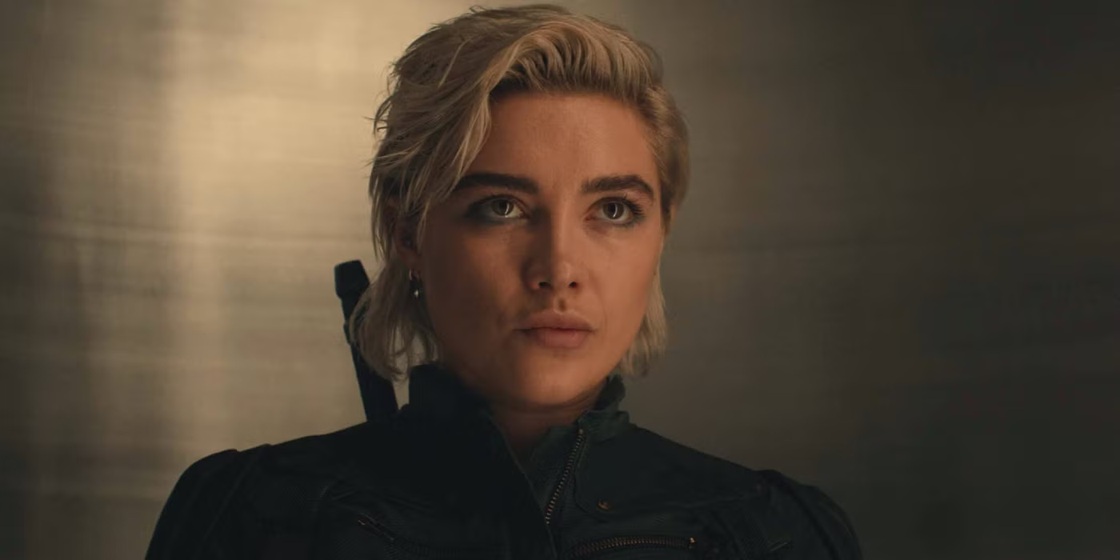
Yelena’s complicated relationship with her brash surrogate father Alexei Shostakov (Red Guardian), memorably portrayed once again by David Harbour, highlights Marvel’s potential to thoughtfully navigate genuine humanity within extreme circumstances. Harbour embodies a striking mixture of bravado, clumsy earnestness, and disarming vulnerability. His yearning for family connection—tragically flawed yet undeniably sincere—evokes empathy and bittersweet warmth. Their dialogues blend humor and heartache seamlessly, creating something far more memorable than flashy superheroics ever could.
Similarly noteworthy, Stan’s performance eventually transcends early narrative missteps. While politician-Bucky feels uncomfortable narrative shorthand, Stan gracefully steers his character into profound emotional territory in smaller moments. His poignant discussions with Harbour’s Alexei about the lasting psychological scars wrought by super-soldier enhancements linger achingly. These interactions demonstrate an admirable willingness from Marvel to confront ideas like isolation, remorse, and the enduring burden of choices made decades prior.
Thunderbolts* also successfully mines emotional depth from its secondary character interactions. Hannah John-Kamen returns as Ava Starr (Ghost), impressively balancing brittle sarcasm with deep yearning for redemption. Ava’s bond with Yelena, two survivors marked deeply by trauma, captures vulnerability rare among Marvel films. Their cautious recognition of shared tragedy holds remarkable emotional potency, manifesting in nuanced exchanges carrying quiet power amid the louder action sequences.
Less effectively developed—but undeniably impressive physically—Olga Kurylenko’s Taskmaster similarly feels underutilized, impressively competent yet narratively underserved. Schreier clearly possesses an eye for beautifully choreographed action sequences, but Taskmaster’s narrative remains mostly peripheral, indicative of lingering Marvel hesitations when grappling with nuance in morally complex personas.
Central antagonist Bob, known as The Sentry, provides perhaps Thunderbolts*’ most substantial thematic weight. Lewis Pullman portrays Bob’s gradual breakdown with vulnerability and unpredictability, grappling internally with “The Void,” a mysterious power eroding his fragile sanity. Marvel bravely utilizes Bob’s conflicted character to meaningfully reflect surging popular cultural discussions about mental health, accountability, and how power magnifies personal instability, lending real-world relevance to familiar heroic tropes.
Thunderbolts* thoughtfully positions these conflicts—internal and interpersonal alike—as narrative focal points rather than afterthoughts. Schreier’s story seems purposefully designed to critique Marvel’s relentless preference for unending escalation. Instead, he argues through his grounded storytelling, heroism often requires quieter individual sacrifices, smaller victories—even mere survival—rather than triumphal cosmic displays.
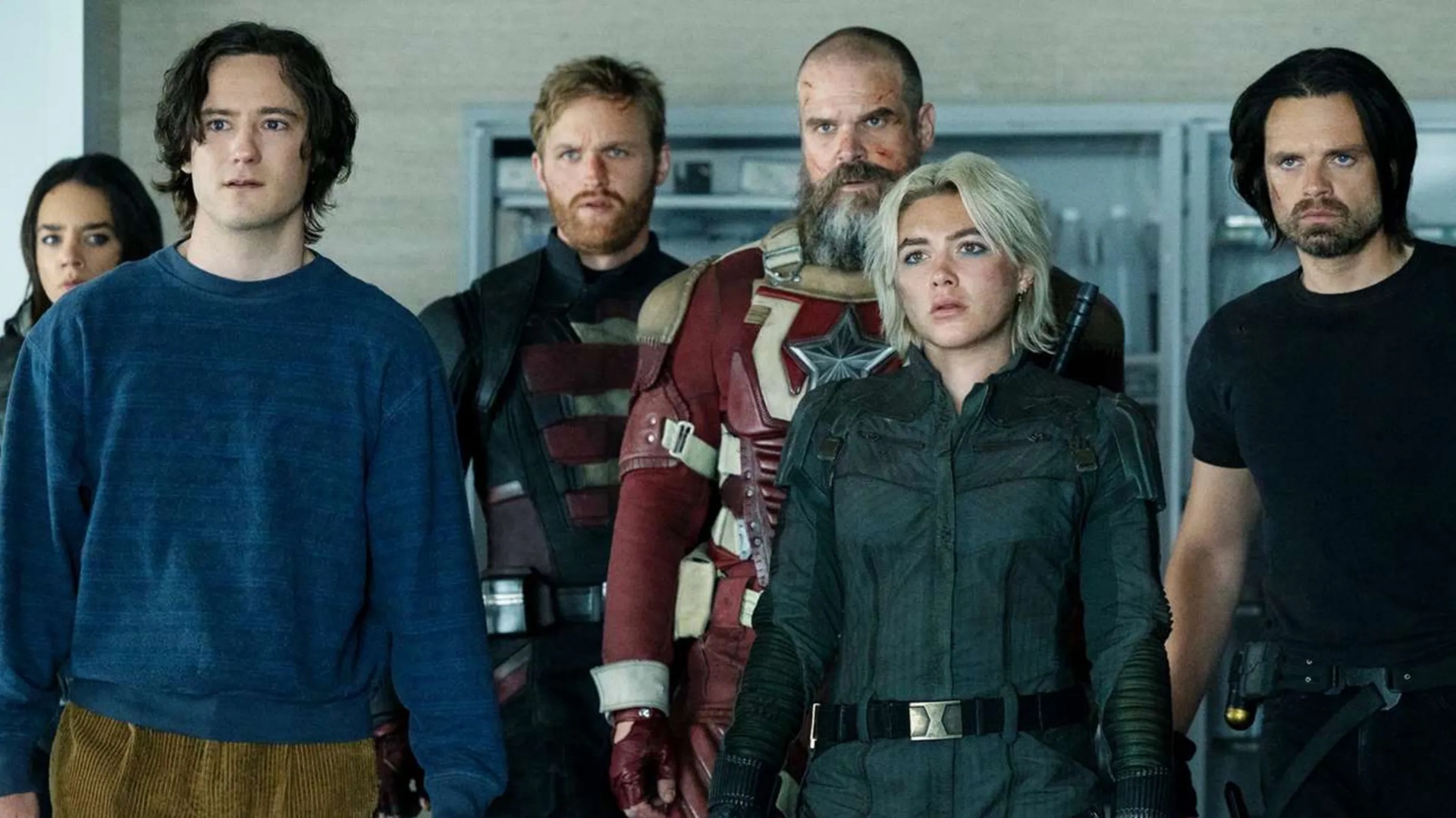
Schreier’s visual approach, notably aided by cinematographer Andrew Droz Palermo, underscores this desire to anchor heightened Marvel action within emotional landscapes recognizable to everyday audiences. Shot selection emphasizes character isolation and intimacy, deftly blending thoughtful indie stylings into Marvel’s vibrant cinematic palette. The quiet framing of characters navigating personal grief amid grand confrontations amplifies emotional stakes effectively in ways few blockbusters attempt, let alone master.
However, the film remains trapped occasionally in Marvel’s formulaic conventions. Thunderbolts* struggles tonally as it attempts to balance Marvel’s standard practice of steady, humorous banter with genuine emotional seriousness. Frequently, these tonal conflicts diminish narrative coherence, with compact jokes awkwardly interjecting heavy, emotional moments. Consequently, dramatic scenes occasionally lose their full realized potential, exacerbating underlying tensions Schreier sets up effectively.
Nevertheless, when Thunderbolts* dares to step free fully from the broader MCU scaffolding, it achieves genuine emotional resonance. Its most memorable sequences are candid and reflective: quiet dialogues contemplating grief, thoughtful conversations about culpability, regretful acknowledgments that unhappiness endures even amid missions deemed successful.
Schreier gifts his audience subtlety rare within Marvel’s typically bombastic cinematic canon, gently suggesting grandiose spectacle need not overshadow relatable emotional truths.
Thunderbolts* ultimately serves as an intriguing microcosm reflecting Marvel’s recent identity anxieties. It simultaneously leans into and critiques the MCU’s relentless narrative propulsion—remaining entwined within franchise machinery yet yearning to portray genuinely nuanced characters occupying morally ambiguous worlds. The film seems uncertain precisely how far removed from Marvel tradition it dare venture, never entirely committing solely to its quieter character-driven vision.
Yet perhaps restrained ambition represents Thunderbolts*’ true triumph. It quietly acknowledges audience fatigue from superhero overexposure without blatantly rejecting Marvel’s heritage outright. By thoughtfully moderating internal conflicts and quieter character explorations alongside expected action trappings, Schreier suggests Marvel need not abandon signature conventions altogether. Rather, thoughtful recalibrations—emphasizing smaller-scale intimacy and honesty—help renew viewer investment even while navigating crowded superhero landscapes.
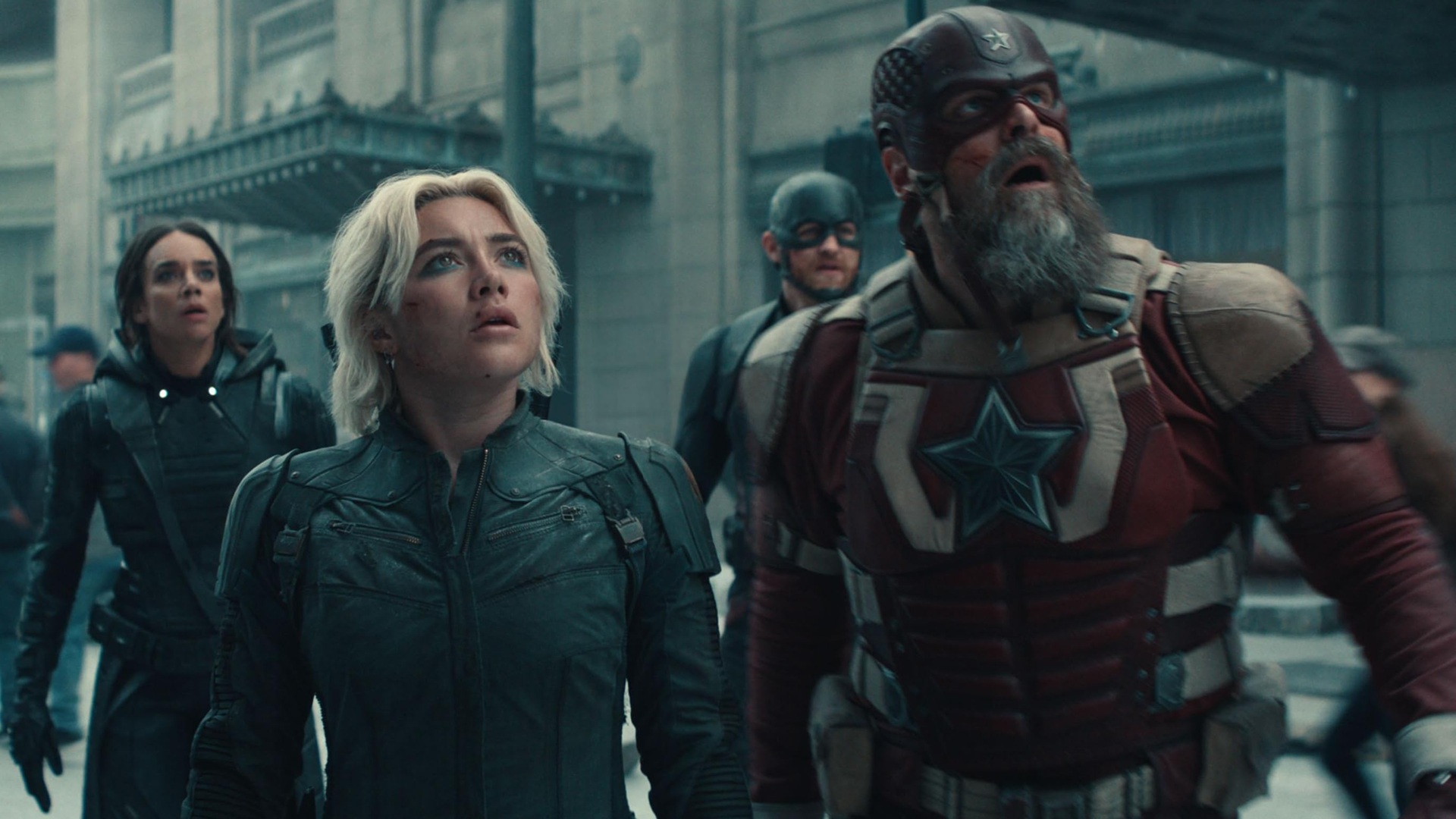
Audiences who appreciate Marvel primarily for sprawling set-pieces and comedic levity may leave Thunderbolts* hungry for greater spectacle. Yet those exhausted with superhero cinema’s overblown grandeur might find surprising emotional resonance within Schreier’s more humble iteration. The film carefully underscores casual heroism’s meaningful subtlety, reminding us that character authenticity and relatable struggles ultimately matter far more than lavish effects or narrative bombast.
In filmmaking terms, then, Thunderbolts* represents a consciously quieter, refreshingly introspective direction for Marvel, subtly challenging the ethos of its broader cinematic universe. Schreier’s nuanced explorations of grief, moral ambiguity, personal sacrifice, betrayal, and reluctant redemption reveal heroes who seem strikingly human beneath spectacle-infused bravado.
For all its tonal imperfections, Thunderbolts* admirably displays genuine ambition, seeking emotional nuance amidst MCU formula constraints. By embracing quieter, subtler, character-based storytelling, Marvel signals readiness to contemplate measured adjustments to its familiar cinematic approach.
Thunderbolts* thus provides a valuable lesson for Marvel’s future storytelling directions: genuine heroism rarely requires cosmic triumph or standing ovations—even in sprawling, interconnected universes. Rather, courage and vulnerability often reside most powerfully within nuanced emotional landscapes, the subtleties discovered through genuine character struggles. The film’s modest success emerges paradoxically by partially rejecting the MCU’s signature grandeur, suggesting Marvel’s truest strengths lie exactly where grandiosity ceases, and sincerity begins.
As Thunderbolts* quietly illustrates, perhaps the most memorable victories come from sustaining emotional honesty amid endless superhero spectacle, from finding meaning quietly through human bonds rather than thunderous triumph. Marvel’s new chapter might well start here, rediscovering purposeful storytelling within introspective spaces, subtle authenticity beneath soaring spectacle. A quieter triumph indeed.

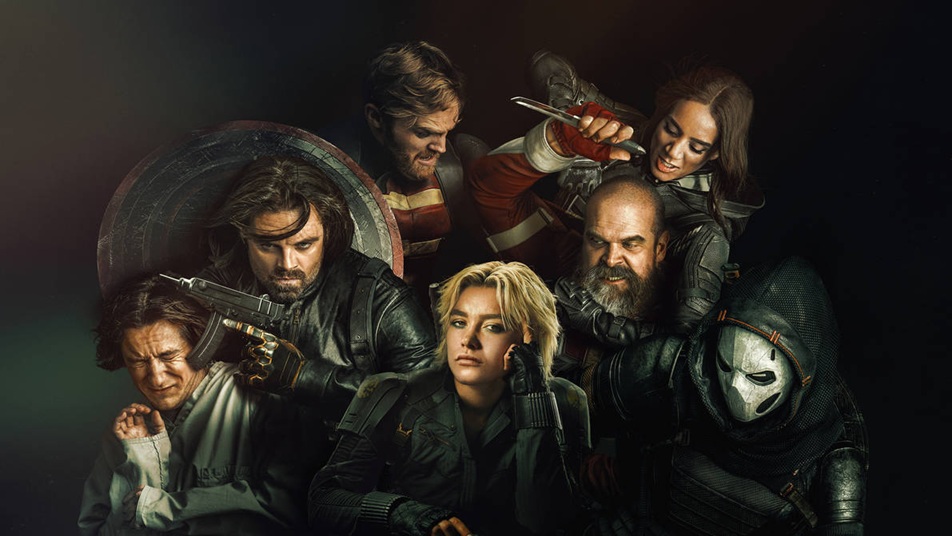
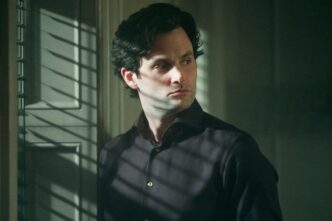



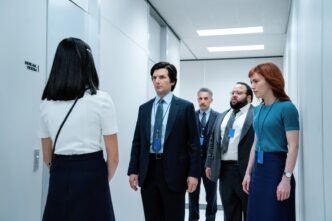
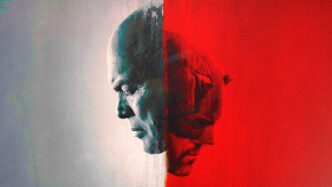
Leave a Reply